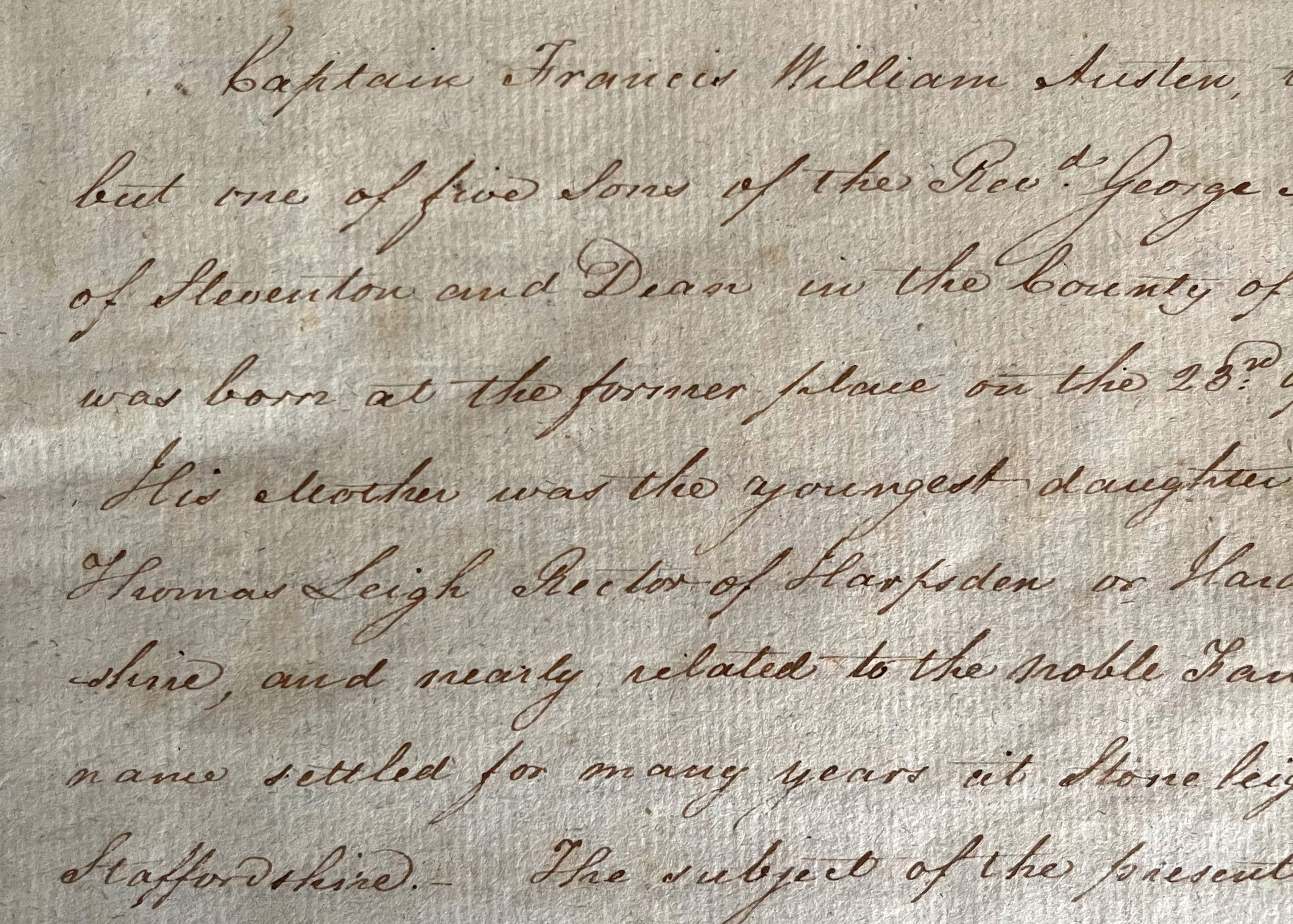
Do you have a knack for reading your doctor’s illegible notes or making out the fine print on a weathered clothing tag? If so, you may be able to help out the Jane Austen’s House museum in Chawton, England decipher a hastily written memoir that could hold new information about the life and times of the famous author.
The manuscript was written by Austen’s brother Francis William Austen, an admiral in the Royal Navy. Jane Austen’s House acquired the 78-page document, along with a collection of drawings and watercolor paintings, at an auction last year. Unfortunately, Francis’s unruly penmanship makes the manuscript difficult to read—so difficult that the museum has called on the public to help with its transcription. Applications are currently closed, though, as the museum received too many inquiries for its staff to handle.
Watercolor sketches from Francis Austen’s album. Photo: Jane Austen’s House
Jane Austen is one of the most celebrated writers in the English language, known for authoring such literary classics as Emma, Pride and Prejudice, Sense and Sensibility, and many others. Francis joined the Navy during the Revolutionary and Napoleonic Wars, ultimately becoming the commander in chief of the North America and West Indies Station.
His memoirs not only detail his career, but also his relationship with his family. Curators at Jane Austen’s House believe that the manuscript may shed light on Austen’s writing, not least because Francis formed the basis for several of her male characters, including Captain Wentworth and Captain Benwick in Persuasion, as well as William in Mansfield Park. As literary critic Brian Southam explained in a biography of Francis and his sibling Charles titled Jane Austen and the Navy, “The sailor brothers recognized themselves in the novels, their habits and their sayings, and allowed their sister to use the names of their ships. In this sense, Mansfield Park and to a greater degree, Persuasion, can be seen as forming a tribute to them and to their service.”
Scholars J.H. and E.C. Hubback, authors of Jane Austen’s Sailor Brothers, argued the writer’s attitude towards the navy and its employees was romantic, stating “their very faults are lovable in her eyes, and their lives packed with interest.”
Jane Austen’s House museum in Chawton. Photo: Jane Austen’s House.
Jane Austen herself frequently discussed her writing process with Francis. When the latter was serving on the HMS Elephant in the Baltic Sea in 1813, she wrote him a letter stating, “I have something in hand—which I hope on the credit of [P]ride and P[rejudice] will sell well, tho’ not so entertaining. And, by the bye, shall you object to my mentioning the Elephant in it, and two or three other of your old Ships?—I have done it, but it shall not stay, to make you angry—They are only just mentioned…”
The museum’s plea to the public echoes another, successful open source project known as the Vesuvius Challenge, in which computer scientists from all over the world use artificial intelligence to decipher ancient philosophical scrolls damaged by the eruption of Mount Vesuvius in 79 C.E. More than a year into the challenge, winning participants managed to transcribe multiple paragraphs, resurrecting texts that were once considered lost.
Jane Austen’s House hopes similar progress can be made with Francis’s memoirs. “It’s really, really rare, to have new Austen family material come to light,” Sophie Reynolds, the museum’s head of collections, interpretation and engagement said. “It’s not fully known what is in there so that’s exciting.”